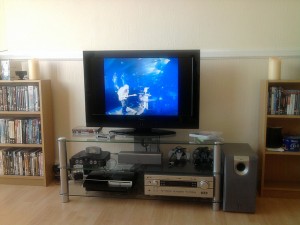 Recently we discussed focusing on the big things, and how it is much more worthwhile to spend your time on the items that will save you a lot of money, like refinancing your house or negotiating your car insurance, rather than the things that will save you hardly anything, like making your own soap or skipping your morning coffee. Today I want to take that one step further and talk about some more of those big things that need your focus.
Recently we discussed focusing on the big things, and how it is much more worthwhile to spend your time on the items that will save you a lot of money, like refinancing your house or negotiating your car insurance, rather than the things that will save you hardly anything, like making your own soap or skipping your morning coffee. Today I want to take that one step further and talk about some more of those big things that need your focus.
Insurance
The concept of insurance is not a new one. In fact, the basic concept of spreading out the risk can be traced back many thousands of years. The idea that we know today, the one where we pay premiums in the event that our insured property, health, or life becomes damaged, developed within the past millennium or so. Primarily due to the fact that this is the time period when cash based systems were replacing trade and barter systems. An interesting fact that many people don’t know: the term underwriter came about when merchants were shipping their goods across the sea, they would post the shipment and its value in the public houses. The insurer would assess the risk, and literally write his name underneath the shipment along with a premium that would be needed to insure those goods.
Modern day insurance is focused on the concept of indemnity, a fancy way of saying “to make whole.” You can see it in every kind of insurance that you purchase today. For instance, you have a car worth $20,000 and you purchase insurance on that vehicle. If you wreck it, the insurance company will pay you what the car is worth (minus the deductible). Granted your idea of what the car is worth may not be completely in line with what they company thinks the car is worth, but the point is you are being made whole, you are not making money on the deal.
Focusing on the Big Things
So now that we are all experts on the history and purpose of insurance, how does that affect our financial journeys? The idea is that you insure the big things, and take the risk yourself on the little things.
Take a look at your life, and think about your biggest assets. You have your health, your ability to work, your house, car, and other tangible assets. In order to protect these, you have health insurance, disability insurance, life insurance, and property insurance. If any one of these items were damaged, destroyed, or otherwise deemed unusable, your financial well being would be devastated. These are your focus items.
Now take a look at your personal property. You probably have a smart phone that is worth a few hundred dollars. Your living room most likely contains a television that is worth a little more than that, and you have odds and ends here and there that if you added up the values it comes to quite the sum. Do you have insurance or extended warranties on them? If you do, step back and look at your financial well being and consider this: would you be ruined if any one of them broke? The answer is likely no. It would be inconvenient, but not devastating.
The idea here is that if you focus on the big things (buy insurance for your big assets), and pass on the little things, you will end up much further ahead than those who think they are getting a good deal when buying insurance for their phone (which if you actually look at the contract, you are paying hundreds of dollars to get a “free” replacement on an item that is worth hundreds of dollars).
Here’s what you should keep in mind if you are having doubts about leaving your goods unprotected: you already have protection on most of them. If you have homeowner’s (or renter’s) insurance, your goods are protected against theft or damage. If you purchased your big ticket items with a credit card, you most likely have a warranty that goes one year beyond the manufacturer’s warranty (check with your card company, this varies). In fact, check out what your card will do for you. Many of them provide concierge benefits that rarely get used.
Wrapping It Up
You can find a lot of information out there telling you that extended warranties are not worth the money. You can also find a lot of information out there telling you that insuring small items is rarely worthwhile. However, many people do not take a look as to why, and often they will plop down 50% or more of the value of the item in premiums “just in case.” If you want to do well on your financial journey, forget about insuring the little things, and focus on the big things.
